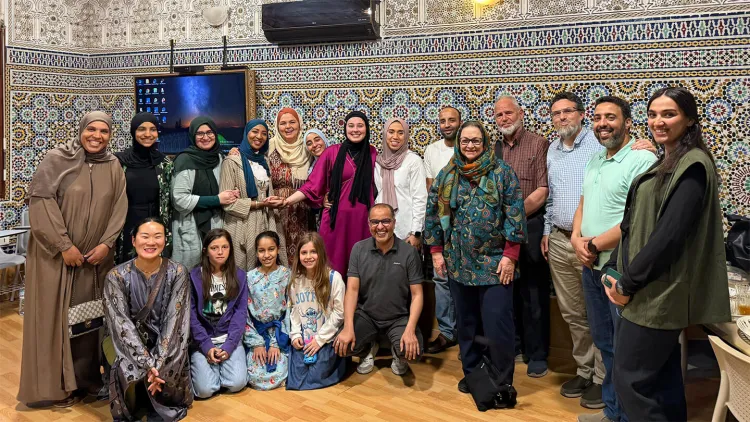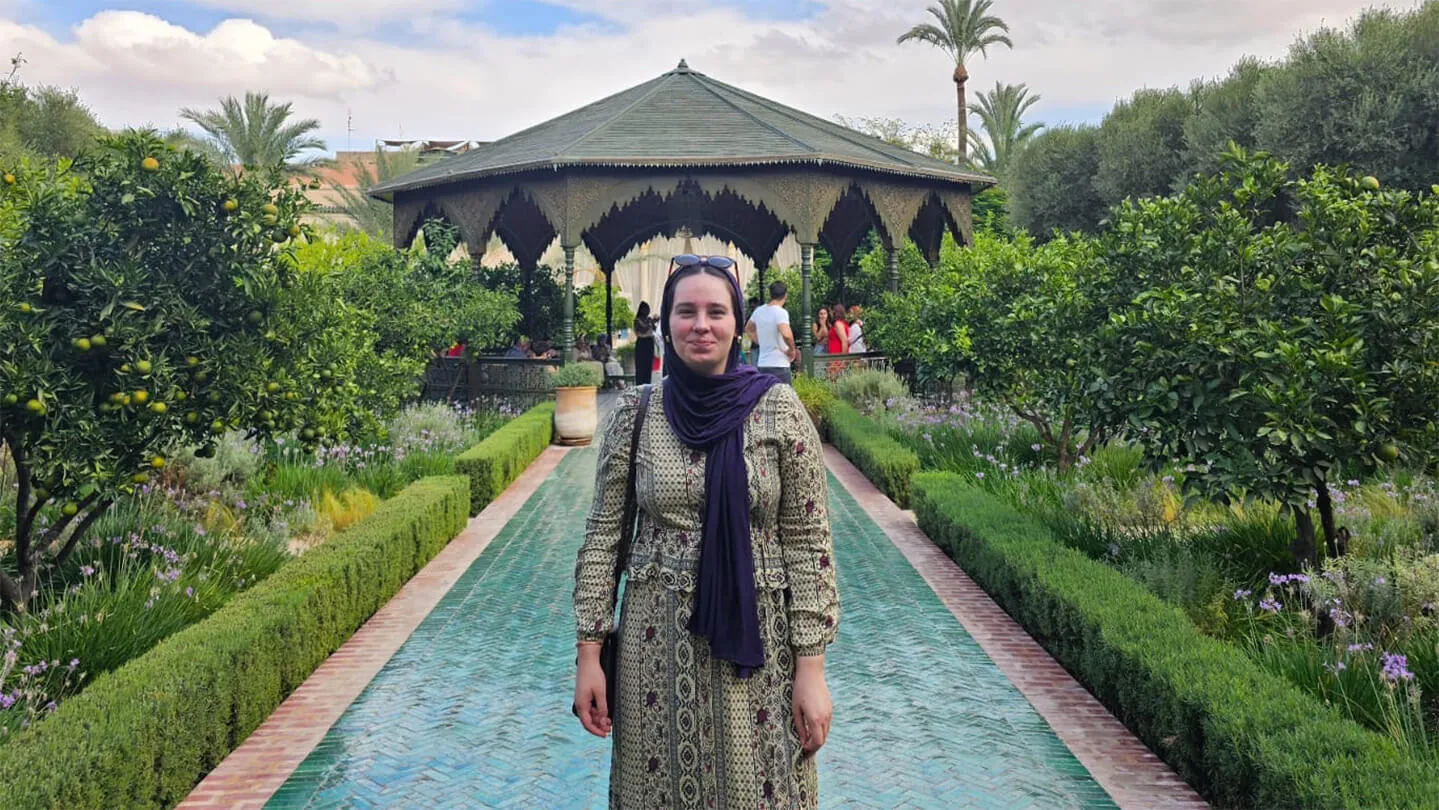Ever since she was young, Alana Bauer ’26 had dreamed of studying abroad. She got a taste of the experience in high school, when she studied Moroccan culture and the Arabic language through the National Security Language Initiative for Youth Program, but thanks to COVID, her time visiting the actual country was limited to a couple weeks. She wanted more.
So, during her sophomore year at the University of Vermont (UVM), intrigued by the idea of returning to Morocco and knowing she wanted to do something related to both her political science major and foreign languages, Bauer set her sights on winning a Boren Scholarship. These highly competitive scholarships are awarded through the Defense Language and National Security Education Office (DLNSEO) to American undergrad students to do intensive study abroad of languages and cultures that are understudied but considered critical.
For help in making her dream a reality, she turned to UVM’s Fellowships, Opportunities, and Undergraduate Research (FOUR) office. “They really inspired me to go for it,” Bauer said. With their guidance, she applied for and won the scholarship.
It was a bold, brave move. As the only student chosen to study in Marrakech, Morocco, she had the unique opportunity to design her own curriculum. Armed with knowledge of the Arabic alphabet and a few formal Arabic words, she arranged and began a rigorous study program at the city’s Center for Language and Culture.
“Arabic is a very interesting language to learn because every region has its own spoken dialect. But then, since the Arab world is so large, they also have what's called modern standard Arabic, also called fusha,” Bauer explained. Each week, she spent 15 hours studying formal Arabic one-on-one with a tutor and six hours studying local dialects of the Amazigh language (spoken by indigenous Moroccans). One dialect she concentrated on particularly was Tachelhyt, which was spoken by her host family.
Bauer’s initial goal was to become fluent in formal Arabic. “I thought it would be good because I could use that anywhere,” she said. “But then people would laugh at me when I spoke to them in formal Arabic, not because they were being mean but because it’s funny. It's as if someone were to come to America and say, `How art thou today?’ It sounds like very funky to a native speaker.”
Realizing that learning the Moroccan regional dialects was key to sounding like a native and, more importantly, to creating personal relationships in Arabic, she changed her focus. She estimates she’s now intermediate at a few dialects. “My goal is to eventually become fluent in all of them, step by step,” she said.
She soon discovered that one of the best ways to learn was, ironically, by teaching. On her free afternoons, she volunteered as a teaching assistant for some of the English classes being taught at the language center. Doing so helped her get a better handle on the grammar structure of the Arabic language. “I was really surprised by how much learning a new language, especially one that’s so different from English, was like learning a new way to think about everything,” Bauer said. “It’s a much bigger endeavor that you might expect because you really have to rewire your mind.”
One thing that helped with the rewiring was total immersion. As the only American at the language center, Bauer faced the challenge of having no one to help her process the unfamiliar culture and language. But she also counts this as the most rewarding part of her experience. “It forced me to become a lot more immersed than I would have been if I had been there with a group—to become, in a sense, Moroccan,” she said. That immersion also helped her develop an instinct for what sounds right and what doesn’t. “I still watch Syrian soap operas every day just to stay on top of my game.”
Eventually, Bauer began to feel right at home in Marrakech. “I was kind of shocked by how mundane everything became after a while, and I mean that in a good way,” she said. “Like anywhere in the world that’s different, there’s always that initial shock of whoa, this is so cool, or that’s so crazy. But after a while you just sort of realize that everyone everywhere is just living their daily lives, and it’s really humanizing to know that we’re all the same.”
Bauer’s time in Morocco wrapped up with a graduation party this past May, where she was surrounded by her friends, teachers, and host family in an unforgettable send-off. “It was so special to have everyone there. Being in the country alone, it's easy to feel out of place, and there were times when I felt really overwhelmed,” she said. “Being surrounded by my Moroccan community was proof to me that I had left my footprint there.”

